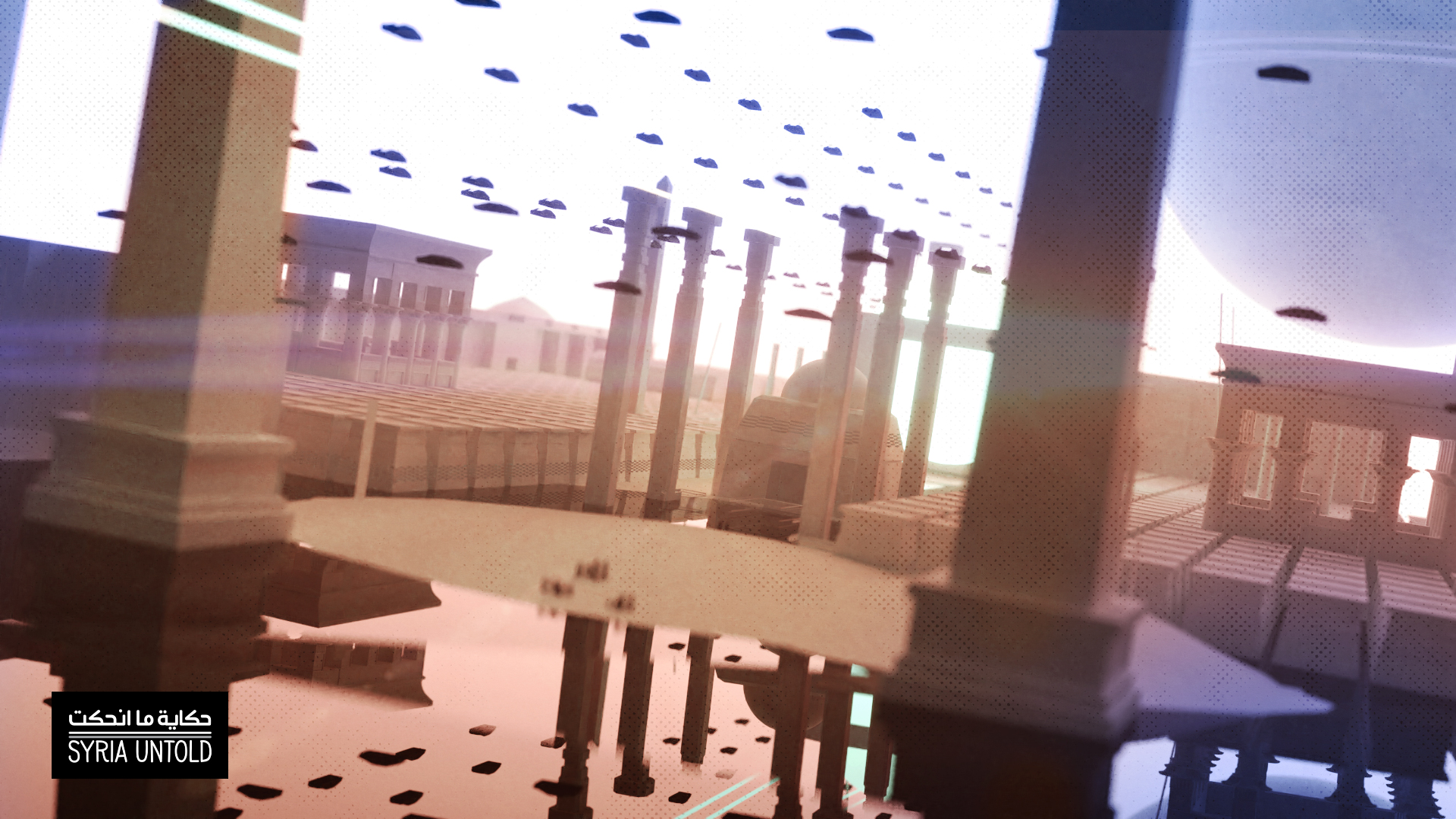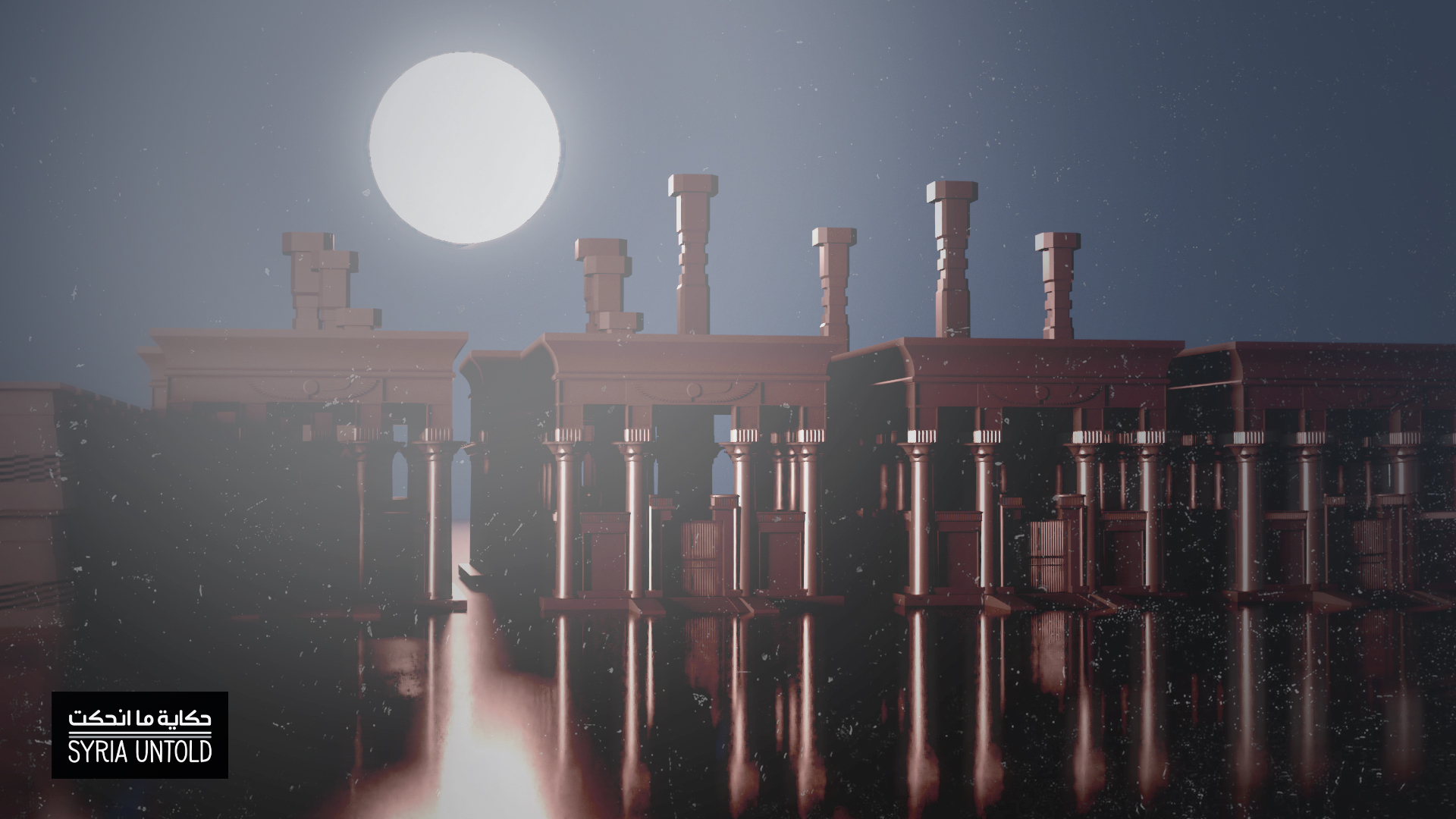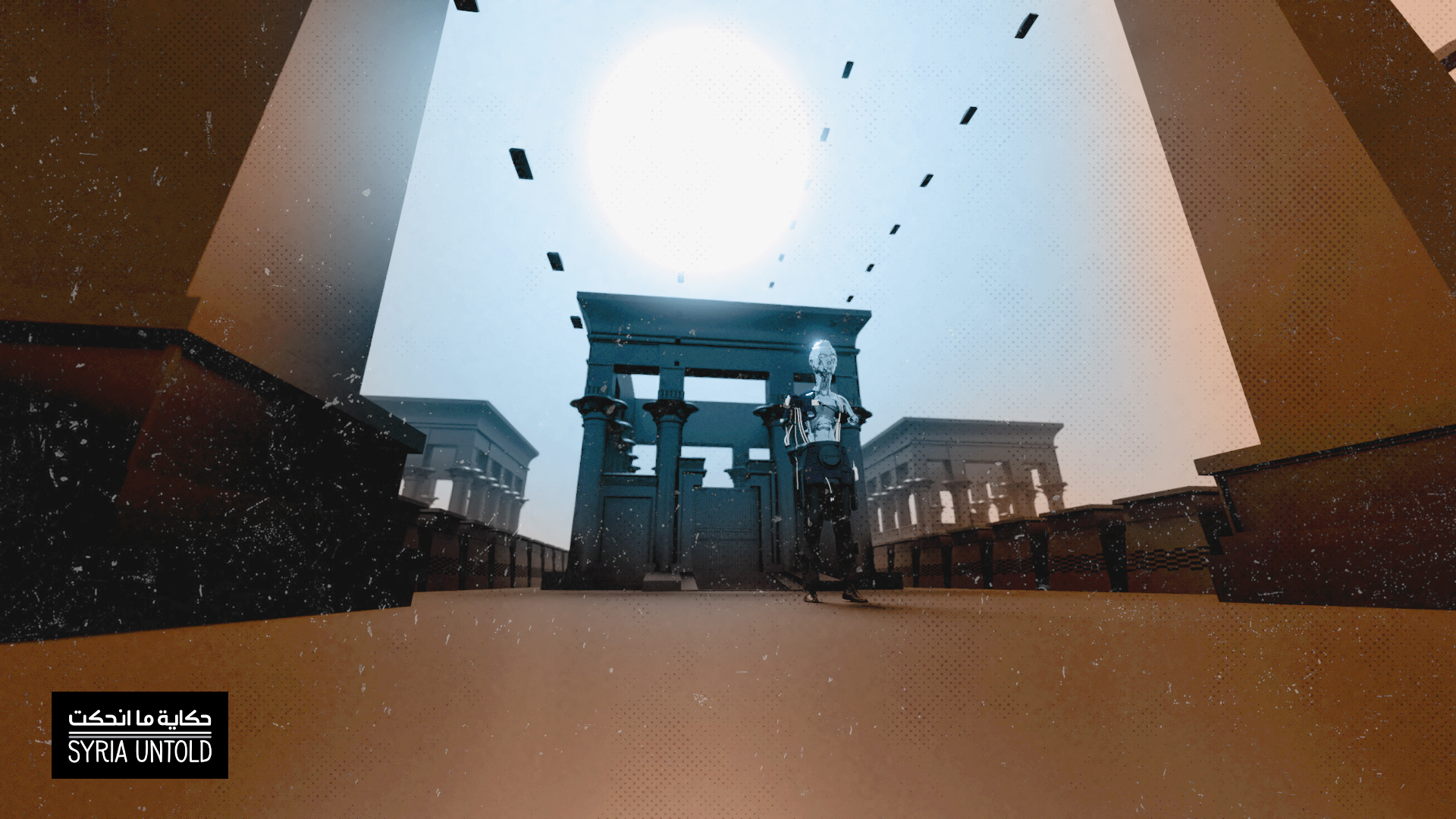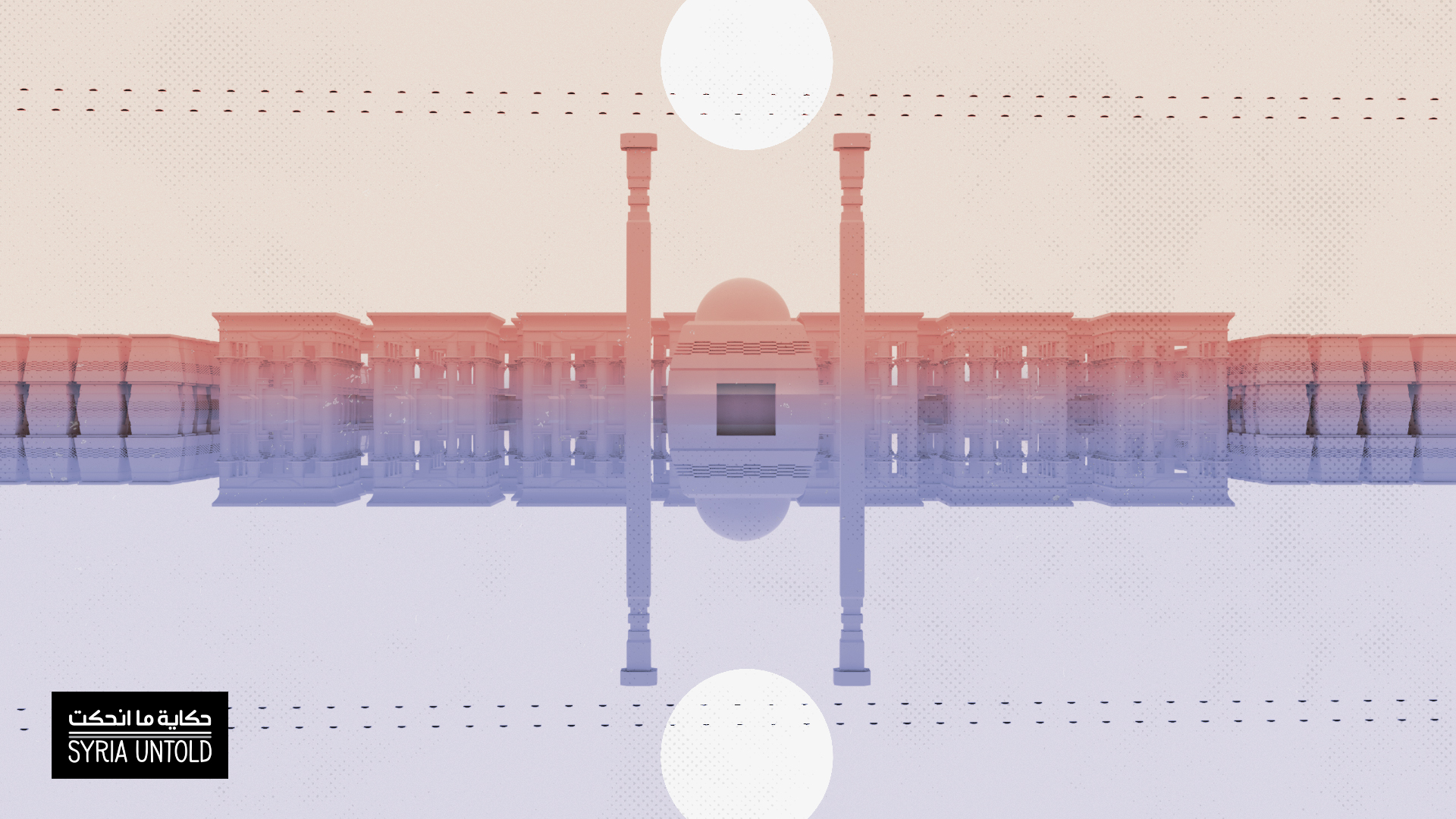This reflection is part of SyriaUntold’s collaboration with Ecologìas del Futuro on science fiction and imagining the future in the MENA region. We asked writers, artists, journalists and filmmakers from different countries across the region to send us short audio messages or reflections on what their world may look like in 300 years, and their relationship with the distant future.
Scroll down to listen to this piece in its original audio format.
Why does science fiction see the future Middle East facing any other place’s obstacles? I think this is more for environmental reasons than political ones. The political reasons are there, of course, but I see that conflicts will always move from place to place. If they are here now, perhaps they will be in another place in the future. Of course, we will suffer, have been suffering and are currently suffering, and 300 years is quite a lot of time. For example, 300 years means Britain going from the year 1200 to 1400 and finally 1700; in those time spans we see radical changes. Or, for example, in our own region we see drastic changes between the years 600 and 900 AD. I think that the climate or environment will be among the biggest factors that will negatively impact the region, such as water shortages with the rising population. This is something that we all will see over the next 300 years if we remain on Earth.
Science fiction in MENA: An artistic tool for change
26 April 2021
Future disappointments
30 April 2021
I don’t think that the future will necessarily be dystopian or bad—we can go back and say whatever it is we want to happen. Any country or society can change drastically in just 50 or 100 years. We are talking about 300 years. I don’t know what might happen after that amount of time.
Maybe the world will have melted away by then anyway. Maybe speakers of Arabic will have diminished and dissipated, or maybe their numbers will have grown. I don’t know. So no, I don’t think that this distinction is something healthy for us, that people will have either a dystopian vision or a normal vision of the future.
I can step back and say that our dystopia might come 20 years from now, or 50 years—but we are talking about 300. That is 10 generations into the future. Their reality may have completely changed by then. I don’t know what will have happened—maybe dystopia will have occurred, or maybe we will have moved into outer space by then, to other planets.
What is my own relationship with the distant future? I don’t think about it often, to be honest. My thinking is mostly and generally confined to the situation of my country and my people, and their near future. Two years into the future, five, 10, something like this. Maybe 20 or 30, but no more.
How do I imagine the future of my country, 300 years from now? It will have changed. I don’t expect that the same borders will have stayed in place, or that the state will look the same. I think the world will be more globalized. This is a difficult question. It is a nice idea, but 300 years is very distant. In my view, I think that outer space will have a presence, that people will have colonized space—that is, if we’re even still around 300 years from now. I expect that life may move towards artificial intelligence. The population will decrease, as well direct face-to-face contact. I think communication between people will occur from further and further away.
Maybe the world will have melted away by then anyway. Maybe speakers of Arabic will have diminished and dissipated.
Of course, all of this assumes that there won’t be a total collapse of civilization, of development. People may reach a place, like in most American dystopian films (not Arab films), where civilization collapses in the end. This is something to be expected, due to human greed. We already deplete the resources needed for a year in only six or seven months: hydropower, oil, food, drinking water, water for other uses, solar energy. All of it is used up in just six or seven months. We are using up the future capabilities of our children and grandchildren.
I don’t know many Arab science fiction films or novels. I know of Ahmed Khaled Tawfek’s novels and I know one science fiction series, although it’s a dystopian comedy, called Khalsaneh Bishiyakeh, an Egyptian show. To be honest though, I haven’t read these novels. I’ve heard about them, but I haven’t read them. But they are a product of what we’d expect. I don’t think there is anything in them that approaches 300 years in the future. 300 years is very far away—I don’t think there are any [books or films] except for foreign ones that look so far ahead, into a distant future of outer space. And of course in outer space they are all wearing uniforms (nobody knows why) and communicating with aliens. Of course, we can’t base any of this on real data or information, because it is difficult to do so.
As for such work in Arabic, there is less because we produce very little in this field. Perhaps there is more American production in this field, but most of the time it is dependent on a science fiction that is for fun or entertainment, and is not based in fact, or on communication with other planets and galaxies, or with aliens. That is because this is something very hard to do, as 300 years is so distant. And always they are moving towards a sort of globalization or existence—I don’t know what to call it—“universalism”? It’s as if the universe will become a small village.
Listen to Bisher Najjar's original audio recording of this article:









